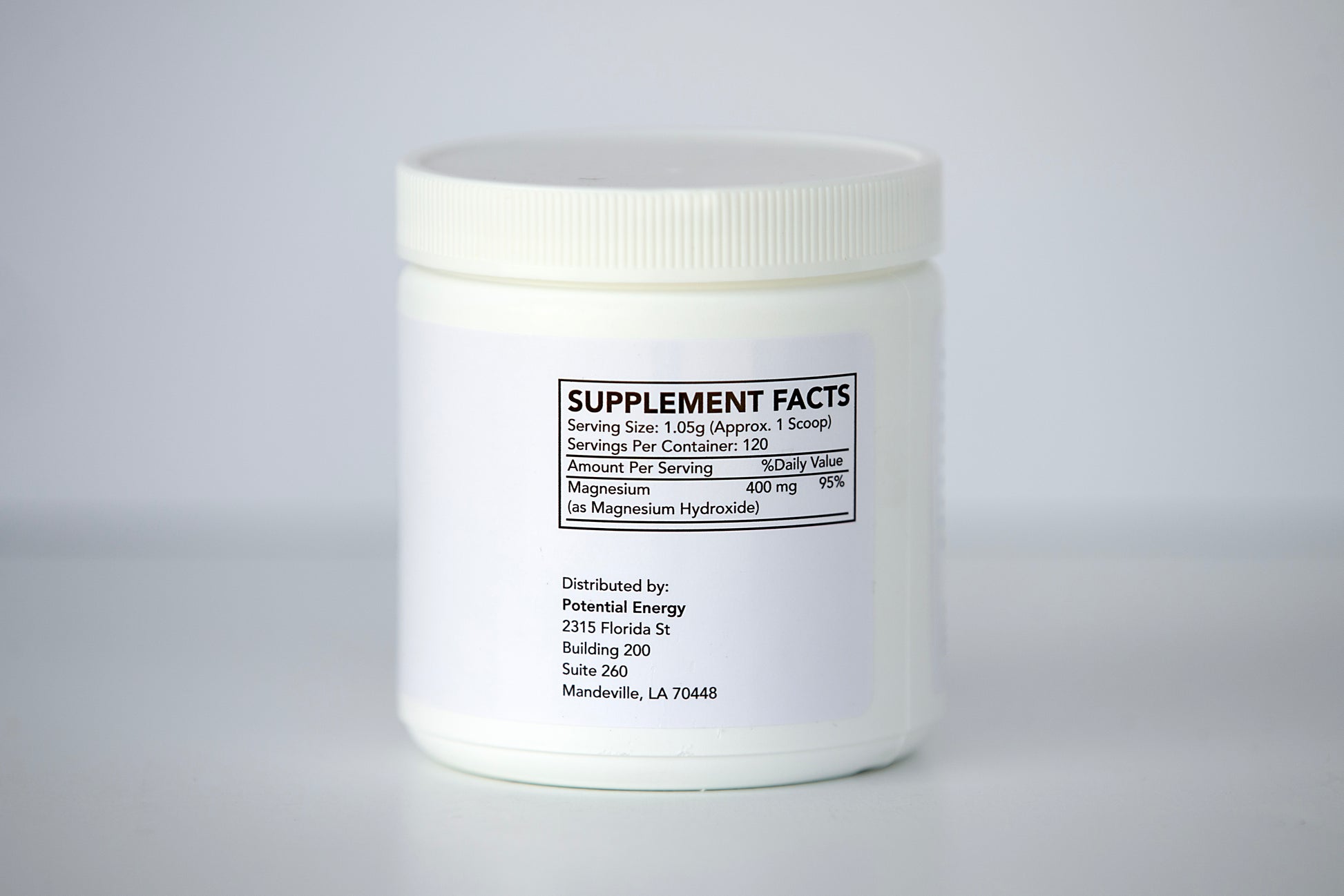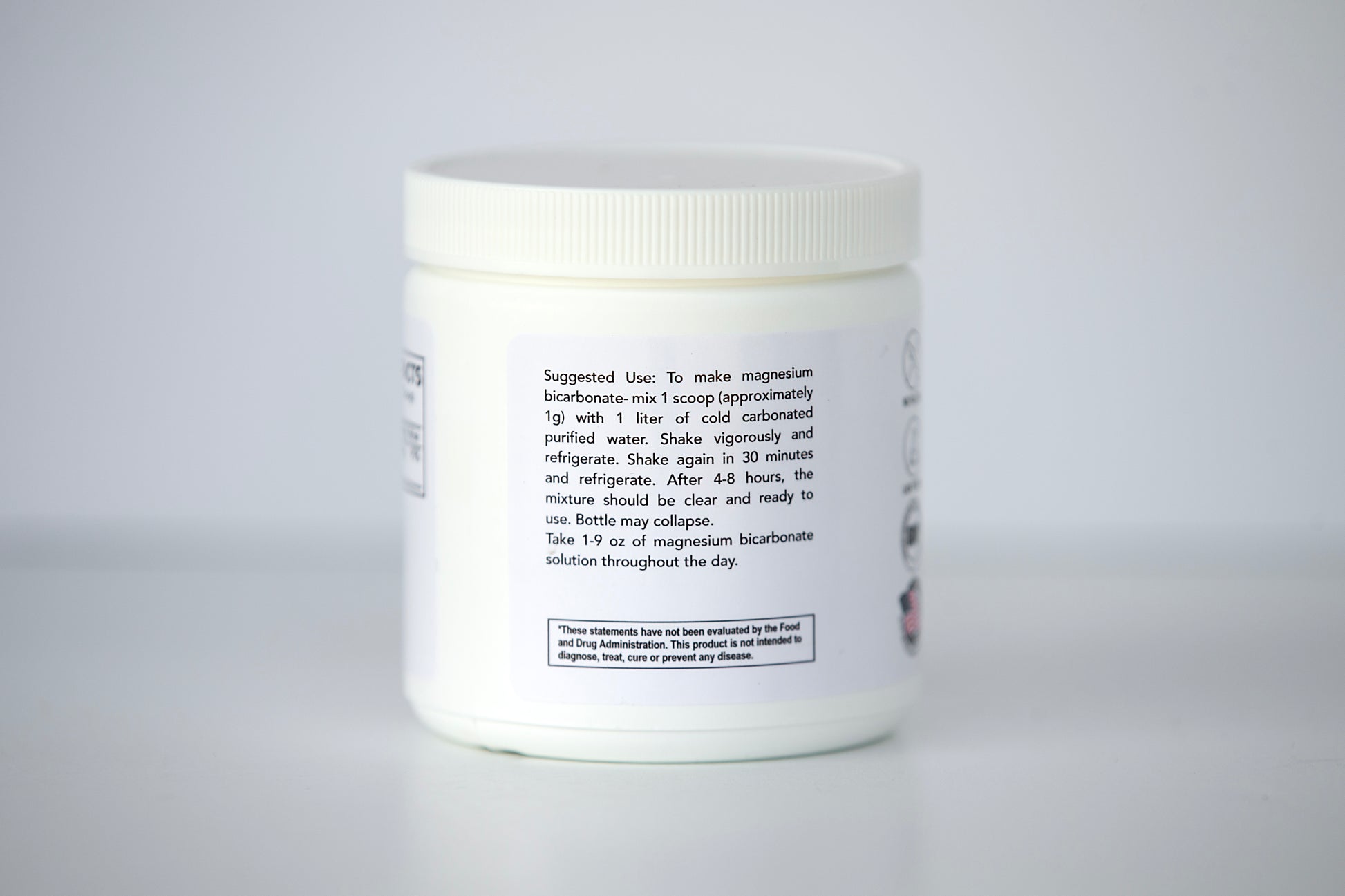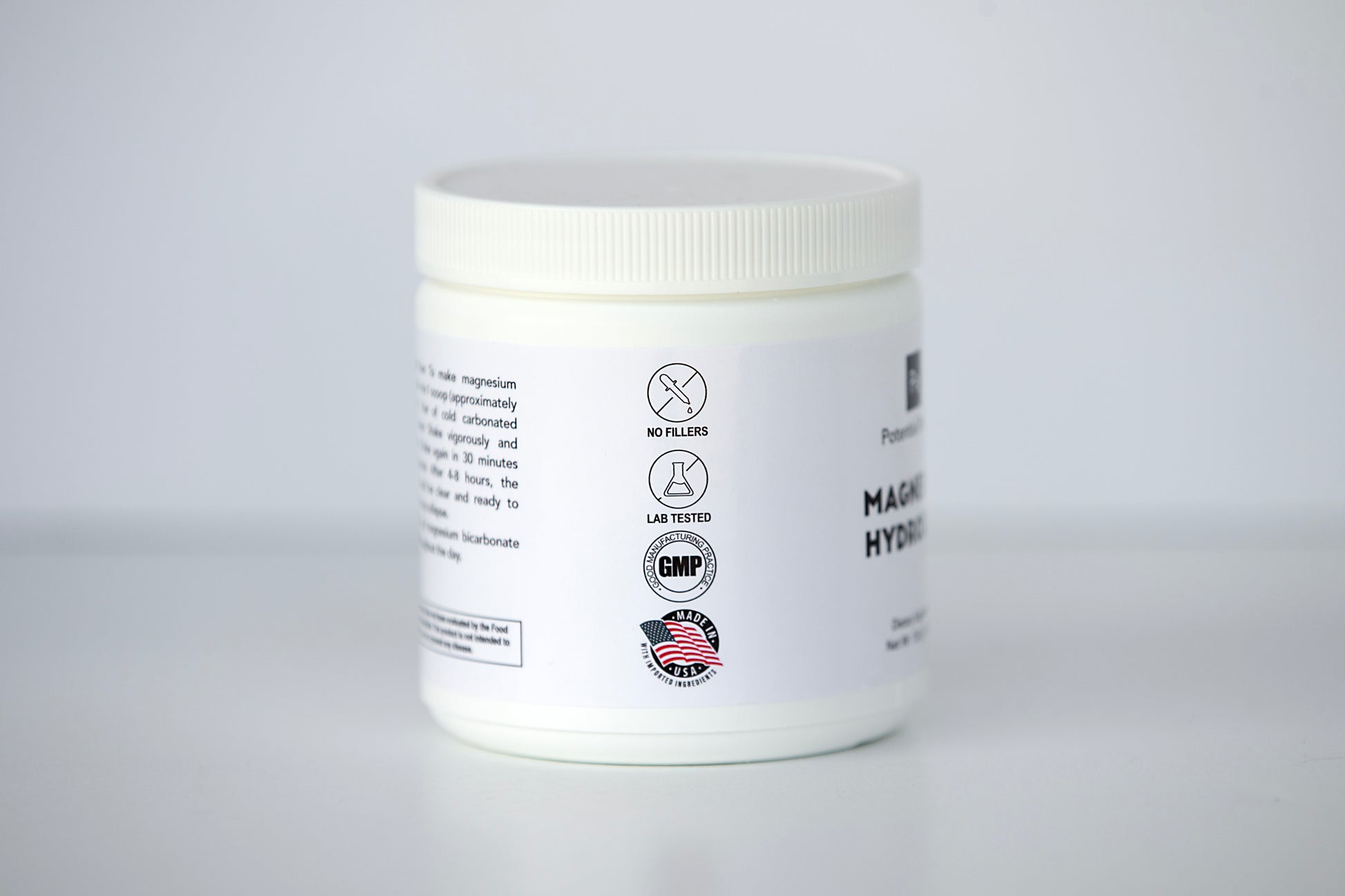Magnesium Hydroxide
Magnesium Hydroxide
Couldn't load pickup availability
Some benefits of magnesium bicarbonate include:
-Reducing stress
-Improving sleep quality
-Relaxing muscles
-Aiding digestion
-Increasing energy
-Relieving headaches
-Promoting heart health
-Stabilizing mood
Directions: To make magnesium bicarbonate, mix 2-3 small scoops with 1 liter of cold carbonated purified water. Shake vigorously and refrigerate. Shake again in 30 minutes and refrigerate. After 4-8 hours, the mixture should be clear and ready to use. Bottle may collapse.
Share

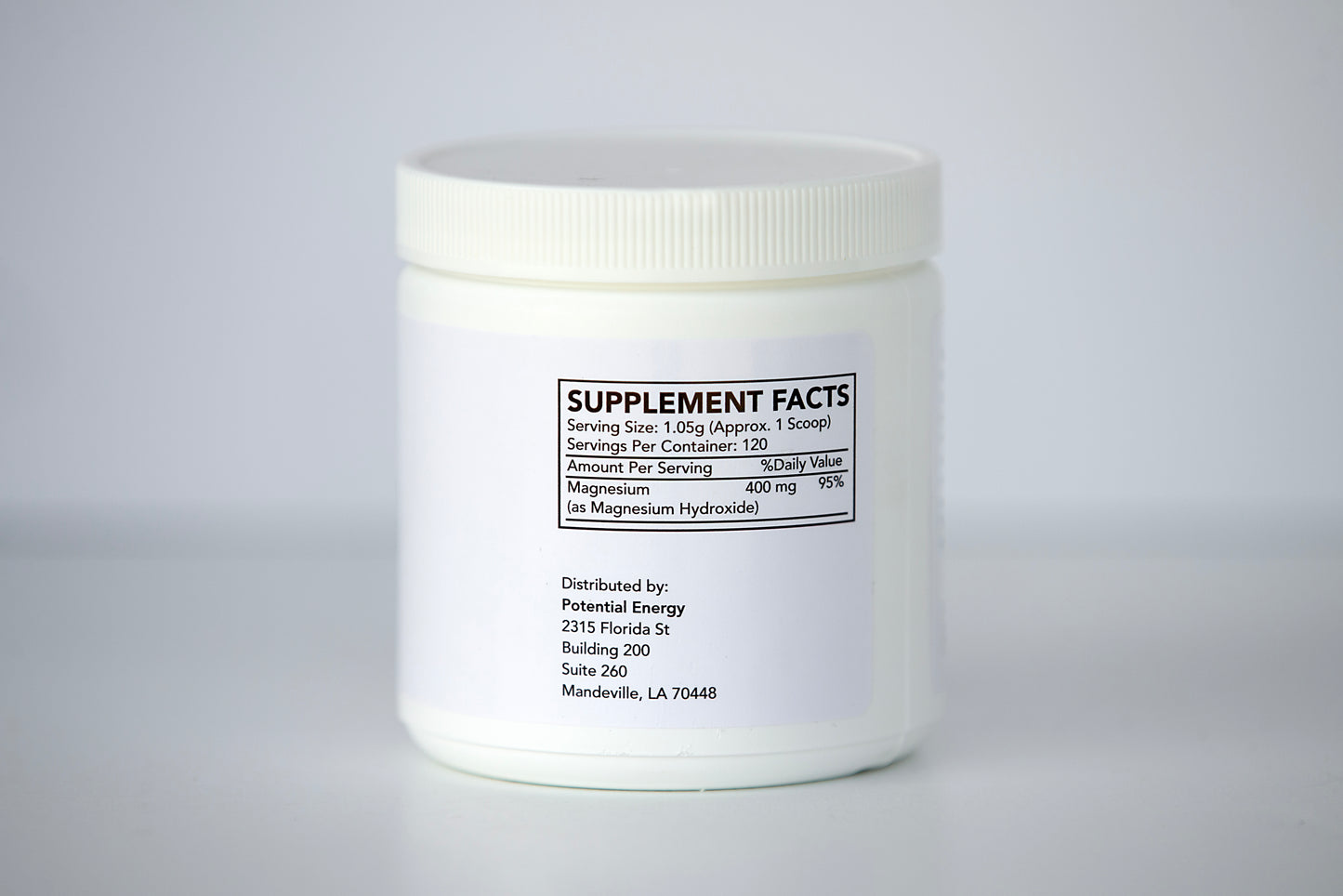
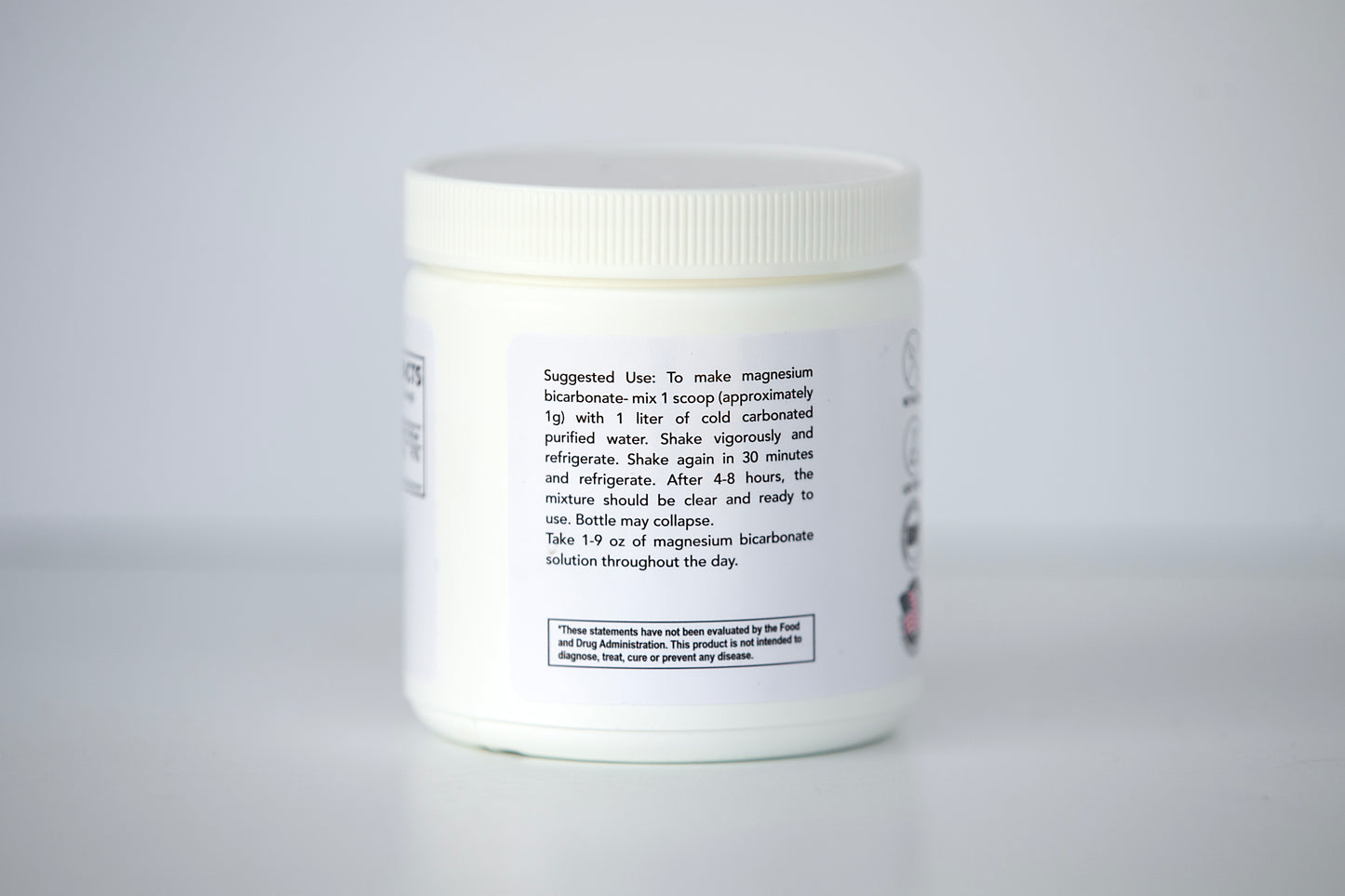
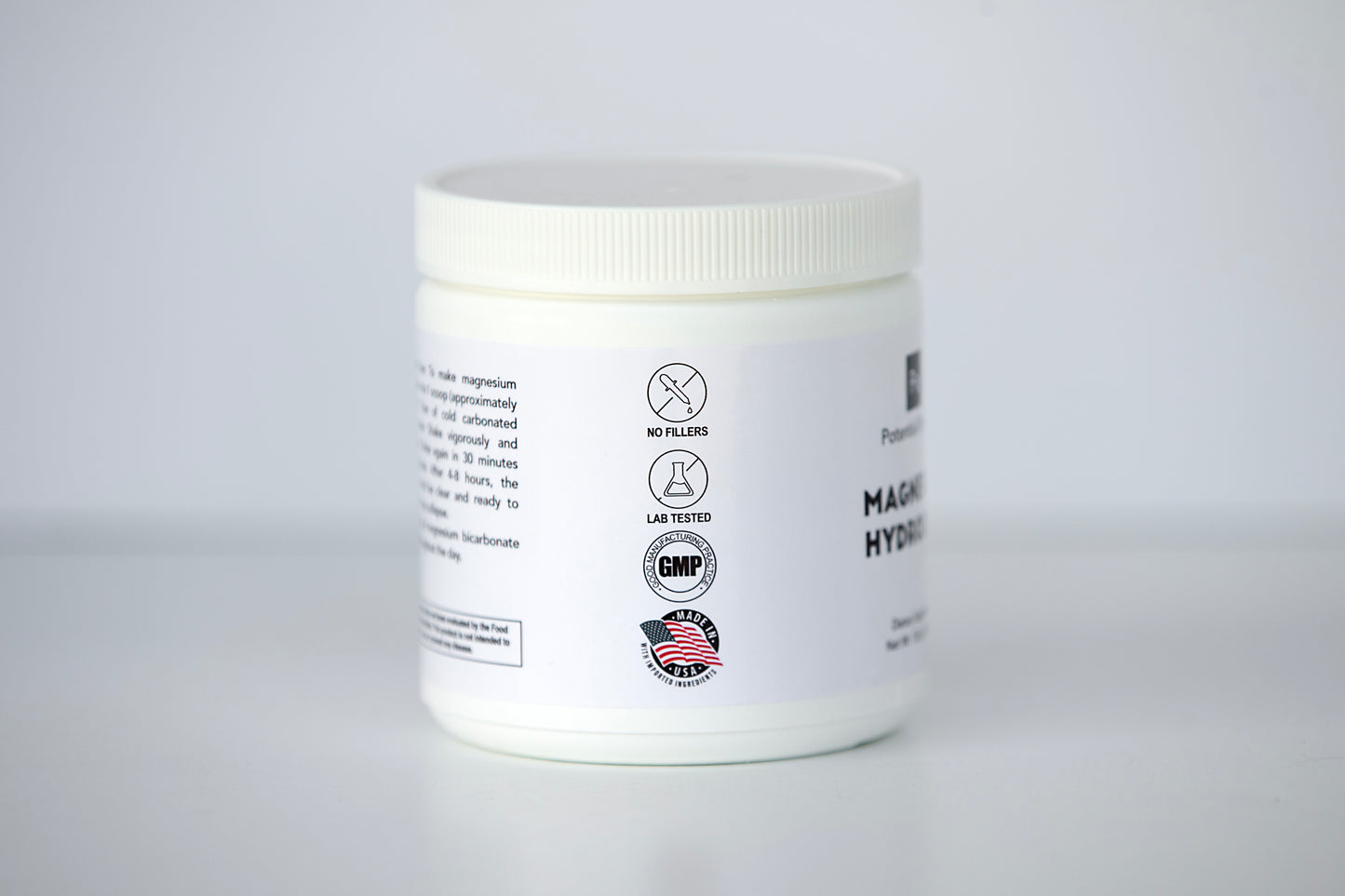
These studies indicate that taking magnesium supplements could be helpful for many conditions. This includes reducing depression, stress, and anxiety. Additionally, magnesium has been associated with better heart health. Also, it plays a role in improving insomnia and sleep problems. Supplementing magnesium could have multiple benefits for our mental and physical well-being.


